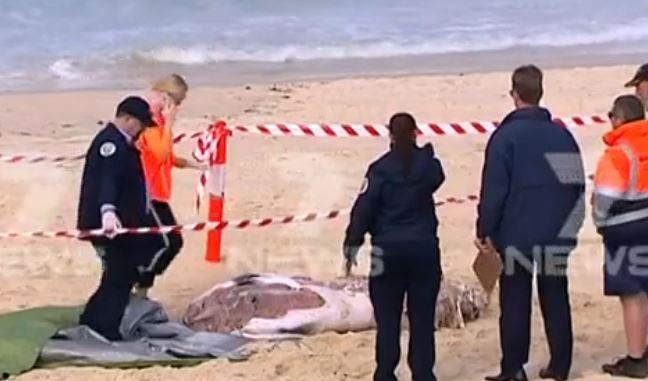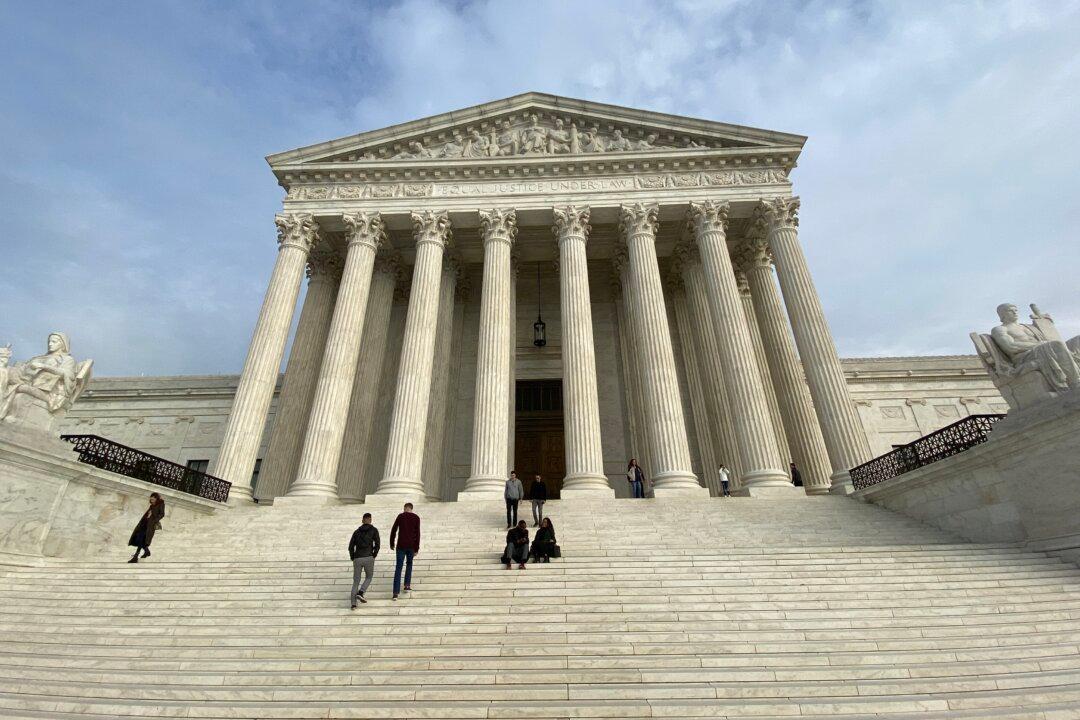Bondi Beach in Australia was closed on Aug. 28 after a shark-bitten, headless whale carcass washed ashore.
The whale was covered with a number of shark bites and was believed to be a juvenile humpback. The whale was also missing its tail, an official with the National Parks and Wildlife Service told AAP.




